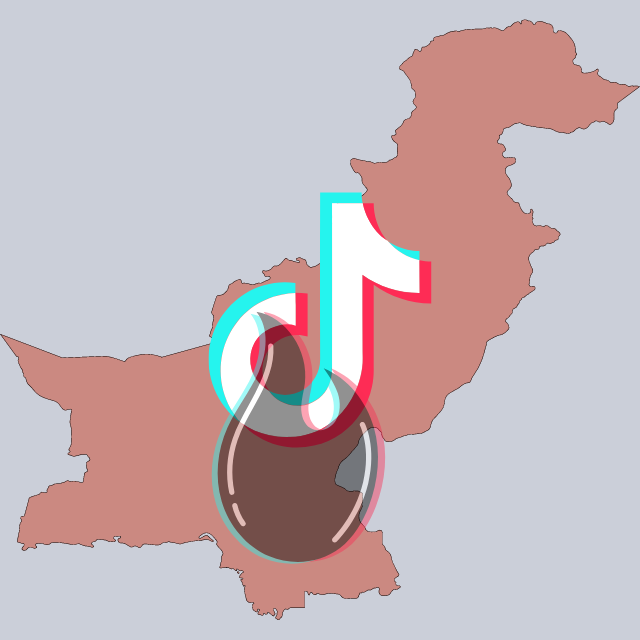Thank you for joining us for our 10th edition!
Hello and welcome back to Dissent Dispatch! This week:
Unbelief Brief: Security measures for Islamic New Year, and Iran’s presidential election.
EXMNA Insights: Our thoughts on Islamic New Year and the Islamic Calendar.
Persecution Tracker: A Pakistani Christian faces punishment
EXMNA Updates: Join us at AHACON24!
The Unbelief Brief

With the passing of the Islamic New Year this Sunday and the beginning of the month of Muharram, Pakistan is beefing up security measures, deploying its army “nationwide” in preparation for possible threats. As the first month in the Islamic calendar, Muharram is a time of great significance for Shia Muslims who mourn the death of Hussain the grandson of Mohammed, and special ritual practices, such as processions, are common.. During a month when Muslims are ostensibly prohibited from engaging in activities of warfare—it is ironic that intra-religious violence and vigilantism are so predictable that the US embassy has issued a warning to any American citizens currently there. Shia religious events are routinely the targets of religious militancy and terrorism.
Also taking place in the shadow of the Islamic New Year: Iran’s presidential election, which, as many Iranian activists have pointed out, is only an “election” in the most dubious of terms. Since the murder of Mahsa Amini in police custody, an initial flurry of protests has been met with crackdowns and increased brutality. Though the protests have largely dissipated, discontent in Iranian society remains, resulting in a recent effort by the aforementioned activists to boycott the presidential election. Turnout for the first round indeed reached record lows, but in spite of the boycott efforts, it rebounded to levels similar to that of the 2021 election in the second round. Nevertheless: it is worth noting that the victor, reformist Masoud Pezeshkian was the only candidate to have offered any criticism at all of Iran’s hijab laws.
Yet there appears to be little reason for optimism with regard to progress on the hijab issue, which Iranian authorities have become only stricter about. This was clearly seen during the presidential election itself. In many parts of the country, women not wearing the mandatory hijab, or those wearing the hijab improperly, were reportedly denied the ability to enter polling places and vote. According to IranWire: “The strict enforcement marks a shift from past elections when authorities were said to be more accommodating to boost voter turnout.”
EXMNA Insights
The evening of July 6th marked the first day of the Islamic year of 1446 AH. The Islamic calendar, also known as Hijrii, is a lunar-based system with each of the 12 months beginning following the sighting of the new crescent moon with the naked eye.
While the Hijri calendar’s primary function is to chart milestones for religious observance, it is almost always used alongside the Gregorian calendar. Practical use of the Islamic calendar is both difficult and disadvantageous in matters related to civil use. One of the most glaring weaknesses of the Hijiri system is its lack of synchronization with the solar year. In the Hijri calendar system, religious milestones drift throughout the seasons over a 33-year cycle. This means that Ramadan, the month of fasting, can fall in any season, leading to varying lengths of fasting hours across a range of seasonal temperatures. The constant variability of the Hijri calendar is particularly challenging in regions that experience seasonal phenomena such as polar days and nights, which make starting and stopping fasts difficult, or in excessive heat where going without water for long periods of time can be deadly.
The Islamic calendar is also hindered by its reliance on moon sightings without the aid of astronomical instruments or devices. This can introduce subjectivity and variability, as different regions may sight the moon on different days, leading to inconsistencies in the observance of important dates. The Islamic calendar's inferiority to both standard pre-Islamic lunisolar or solar calendars in terms of practicality and global synchronization highlights the challenges of using a purely lunar system in a modern, interconnected world.
Persecution Tracker Updates

A Pakistani Christian has been sentenced to death on charges of reposting images of a desecrated Qur’an on TikTok—even though he was not accused of performing the desecration himself. For more about the case, click here.
On the Horizon

We are excited to announce that we are sponsoring the American Humanist Association’s 83rd Annual Conference! AHACON24 will take place virtually September 14-15.
“From seismic shifts in the United States political landscape to the lightning-fast advancements in artificial intelligence, from the concerning rise of Christian nationalism to the urgent climate crisis – AHACON24 will dive deep into critical topics. But that’s not all — at AHACON24, we’re not just about serious discussions. Get ready to make new friends, play games, and celebrate our vibrant community in style!”
Grab your spot at the conference here!
Until next week,
The Team at Ex-Muslims of North America
P.S. We’d love to hear from you! Share your feedback at [email protected].


